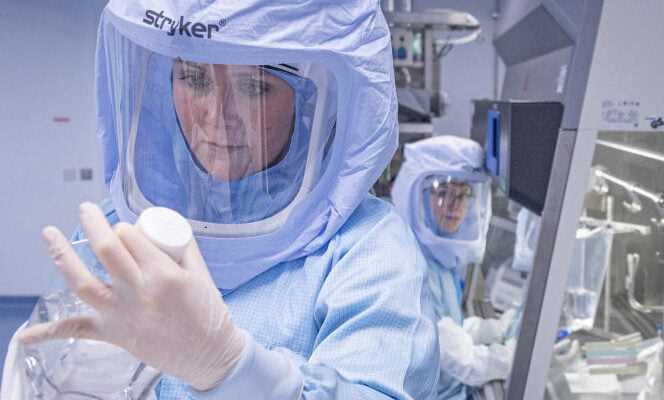Three uppercase and one lowercase. Four letters, and behind a world of promises. While it was not crowned with glory, as many hoped, by Nobel jurors, messenger RNA (messenger ribonucleic acid or mRNA) has enjoyed worldwide popular fame for nearly two years, of which few are medical scientific innovations that have just emerged from research laboratories to be able to take advantage. The Covid-19 pandemic, thanks to the successes of messenger RNA vaccines from Pfizer-BioNTech and Moderna, has brought this technology to the fore, demonstrating for the first time that it can be effective and deployed on a large scale. .
But the story of messenger RNA will certainly not end with this one contribution. Because many are those, scientists from the public sector and pharmaceutical manufacturers from the private sector, who, convinced of its potential, predict a future for it well beyond the pandemic.
Already, many other prophylactic vaccines – that is to say, preventive – are being studied in laboratories around the world. But also a plethora of therapeutic products in fields as diverse as cancer, infectious diseases, rare diseases, autoimmune diseases or regenerative medicine: the field of possibilities is immense.
And messenger RNA pioneers are hard at work to unlock its full potential. In early October 2021, BioNTech announced that a first patient with colorectal cancer, one of the deadliest in the world, had been treated with its individualized messenger RNA vaccine – developed in partnership with the Genentech laboratory -, in as part of a phase 2 clinical trial.
Forty projects in progress
The principle of this precision medicine consists of sequencing the DNA of the tumor in order to identify its characteristics, then, by means of the mRNA vaccine, to inject the patient with the specific message that will allow his body to identify the cancer cell markers and produce the right protein that will fight the tumor.
If successful, this vaccine candidate could then prevent relapses in those most at risk. The laboratory, which has specialized in oncology research since its creation in 2008, has more than a dozen cancer products in development at various clinical stages.
Building on the success of its vaccine against Covid-19, it has also recently tackled the development of a vaccine against malaria, which it hopes to launch the clinical trial at the end of 2022. It is not the only one in contention. His rival, Moderna, is also in the race. Among its many projects based on messenger RNA, including therapeutic vaccines against cancer, the American laboratory is also working on products targeting the Zika virus, HIV, the respiratory syncytial virus – an infection that affects many infants every year – or the flu. In total, nearly forty projects are underway on the biotech benches.
You have 41.38% of this article to read. The rest is for subscribers only.
